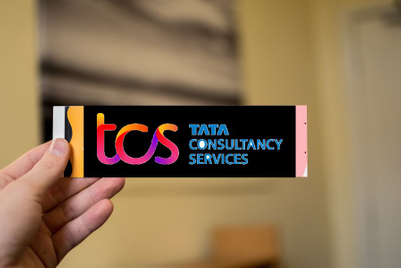Contrary to perception in some circles, including the media, people are not buying Patanjali products because they are priced lower, explained Rashmi Nair, group business director, IMRB, at an event to discuss findings from the IMRB Kantar Worldpanel in Mumbai on 14 July.
WPP’s Kantar Worldpanel is a global shopper behavior research unit. It entered into a long term partnership with IMRB in 2015 for the Indian market.
Before dwelling into explaining the trends and learnings, Nair brought up trends discussed in 2015 and how they have changed.
• The growth rate of premiumisation has decreased
• Growth in consumption of small packs has decreased
• Increase in growth rate for health and hygiene
• Growth rate increasing for beauty segment
Growth of local brands
Raja Biscuits, a local brand, has a share of 10 per cent across India, and 41 per cent in Punjab and Haryana, noted Nair. “That means (almost) half of the people in Punjab are buying it. If you look at the growth rate, it’s growing much faster than the category. So is the case with Ghari (detergents). It’s at 80 per cent in Uttar Pradesh. Similarly, Goldwinner, a big brand in Tamil Nadu, is at 80 per cent (in that State). These brands understand the consumer better, and hence can customise to their palates. Secondly, they spend less on advertising and more on trade. Thirdly, if you look at the packaging, it’s as premium as the branded products. So, it benefits the consumer as he gets what he wants and it suits his taste,” she added.
Patanjali
“It’s more a rage than a trend,” said Nair of Baba Ramdev’s Patanjali range of products, terming him ‘unstoppable’ currently,
She noted that in a year, the brand had more than doubled its size from Rs 15 billion to Rs 33 billion. “The first touch point for the brand, interestingly is a proper big ticket item, a toothpaste. Then come the soap and the shampoo. So, unlike what most of us believe, it’s not the price that is growing the brand, it’s the blind belief of buying anything from the portfolio – of it not being harmful. If you look at the reasons for purchasing Patanjali, users have said that the preference is because they believe it’s got no side effects. Only four per cent of the people are buying it only for the price. The buyers of the brand are primarily SEC A,” observed the speaker.
Going back to the roots
A related takeout from Kantar World Panel study was that products with herbal benefits are growing faster than the category. In toothpaste, herbal has grown at 12 per cent against category growth of 3 per cent. People switching from generic to herbal is a ‘craze’ across geographies, noted Nair.
Promotions, ‘Essentials’
“The biggest story for 2016 is promotion. We all know about the ‘free dhaniya’ concept. When one goes vegetable shopping, we don’t really go back without our free dhaniya, and that’s what the consumer really wants. We all like free gifts. Promotion is the trend to look forward to,” said the IMRB executive, citing it as the driver for growth in flat categories.
The definition of ‘essentials’ is getting redefined, explained Nair, attributing it to income growth in 2016 (over 2015) of almost nine per cent. “The actual spends are happening on the non-essentials; it’s grown from 60 per cent to 62 per cent,” she said.
Domestic companies on a high
Across the world, domestic companies have grown at 20 per cent while MNCs are growing at between 11 to 12 per cent, observed Nair. She cited the case of the personal care and face wash categories, in which domestic companies Emami and Himalaya were growing at a 15 per cent. Similarly, in the F&B and salty snacks segment, ITC and Haldiram are at the top, noted Nair.
Cleanliness
Thanking the Prime Minister, Narendra Modi for starting the cleanliness drive, Nair said, “It’s been a trend for the last two years. If you look at spends of people in personal care and household care, that’s growing and food and beverage spend is coming down. If you look at the top five categories, three are in the health and hygiene space.”
New man and desire to look good
Pointing to the Indian male grooming industry which has crossed the Rs 500 million mark, the speaker said, “What we see is 21 per cent of Indian males believe that being well groomed is critical when it comes to being successful. There are male variants of beauty products across personal care and people are really liking it.”
Rise of the chemists
Indicating why chemists should be top of mind when devising marketing strategies, Nair said, “People haven’t spoken about the marketing strategy of a chemist. We hear a lot about modern trade, but there’s no question about chemists. If you look at the numbers, One third of the FMCG and personal care purchases that are happening in India, are happening through chemists. It’s not only the sanitary napkins and diapers being sold there.”
Aspiration of the rural consumer
The last trend Nair cited was about the rural consumer. She said, “The rural consumer is not really very different from us. They have the same aspirations as the urban consumer. This is a trend we’ve been seeing for the last few years and it still holds true. They have similar ambitions. Growth rate for categories like sliced bread, soft drinks or face wash are growing (in rural) and the growth rate is higher than urban. For face wash, the penetration is already a fourth of the penetration of that of urban and so it’s definitely the way forward.”




.jpg&h=334&w=500&q=100&v=20250320&c=1)

.jpg&h=334&w=500&q=100&v=20250320&c=1)


.jpg&h=334&w=500&q=100&v=20250320&c=1)


.jpg&h=334&w=500&q=100&v=20250320&c=1)









